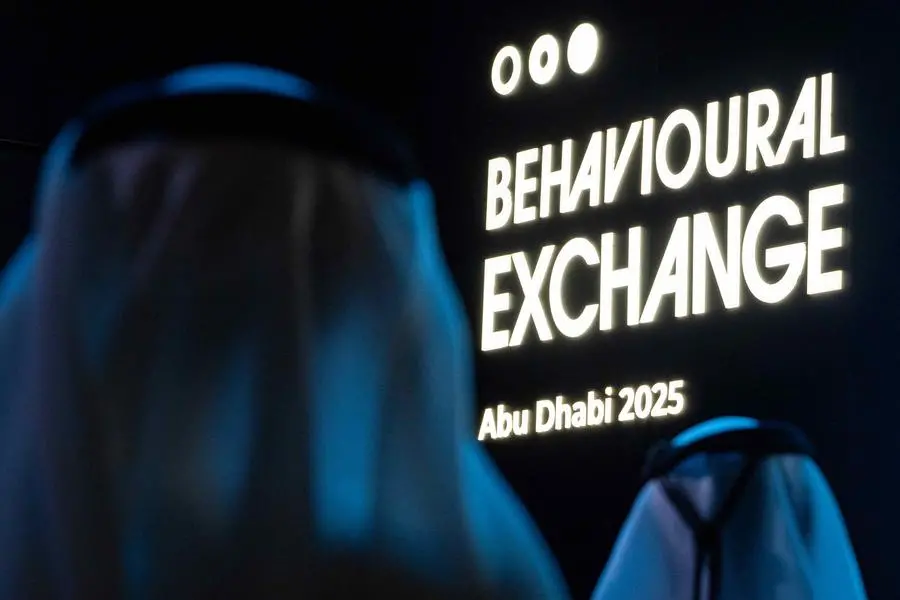PHOTO
Abu Dhabi, UAE – Behavioral Exchange 2025 (BX2025) concluded in Abu Dhabi under the patronage of His Highness Sheikh Theyab bin Mohamed bin Zayed Al Nahyan, Deputy Chairman of the Presidential Court for Development and Fallen Heroes Affairs. Organized by the Behavioral Science Group of the Office of Development Affairs, the conference was hosted at the New York University Abu Dhabi from April 30 to May 1, 2025, with the participation of more than 500 international experts, academics, and researchers specializing in behavioral sciences from around the world. The UAE also launched a global network to shape the future of behavioral sciences, called the ‘Global Behavioral Evidence Network’.
Reflecting on the impact of the event, Her Highness Sheikha Shamma bint Sultan bin Khalifa Al Nahyan, President & CEO of the UAE Independent Climate Change Accelerators (UICCA) remarked, “Our conversations are more than just exchanges of words they create the foundation for true collaboration. Through meaningful dialogue, we can catalyse positive and enduring change. Behavioral science serves as a critical lens through which we understand how to accelerate widespread shifts in daily choices, ultimately helping us build a thriving and sustainable future together.”
His Excellency Dr. Tariq Ahmed Al Ameri, Director of the Office of Development Affairs at the Presidential Court, expressed his deep gratitude to His Highness Sheikh Theyab bin Mohamed bin Zayed Al Nahyan for his generous patronage of the Behavioral Exchange 2025. His Excellency also thanked all the government agencies and private institutions that participated in the conference and highlighted its diverse activities and events in various local and international media outlets, social media, and various digital platforms.
Day 2 started with the official launch of the BSG’s New Frontiers Program—a bold initiative to embed behavioral insights into global policy and philanthropic strategies, bringing together global thought leaders for a high-level, closed-door dialogue on the role of behavioral science in shaping international development. The session was hosted by the UAE Aid Agency as part of BX2025.
H.E. Badr Jafar, Special Envoy for Business and Philanthropy, UAE, delivered opening remarks at the New Frontiers Breakfast during Day 2 of BX2025, highlighting the UAE’s leadership in advancing a more strategic and evidence-led approach to philanthropy.
“Embedding behavioural science into how we design, test, and scale interventions is not just smart, it’s essential. The UAE is committed to ensuring that philanthropic capital delivers lasting value, and UAE Aid is playing a vital role in this shift, applying behavioural insights across countries and territories to enhance the depth, reach, and effectiveness of its impact,” he said.
Day 2 showcased the expanding role of behavioral science in addressing complex global and regional challenges through practical, evidence-based approaches. A key session, “How Can Behavioral Science Turbocharge International Development Interventions to Achieve Global Impact,” explored how behavioral insights are being applied to improve outcomes in areas such as immunization, education, court attendance, and medical adherence.
A second featured session, “The Future of Behavioral Science,” focused on how behavioral science can stay relevant in fast-changing environments. Experts discussed emerging tools for designing, testing, and translating behavioral evidence into policy, and explored the potential of AI to model behavior in real time, helping decision-makers respond more effectively to complex policy challenges.
Additional sessions throughout the day explored a wide range of behavioral applications across policy and practice. Discussions on choice architecture examined how small changes in how choices are presented can have a significant impact on individual and collective decision-making. In “How Can Behavioral Science Help Eradicate Malaria in Our Lifetime,” experts shared how behavioral tools are being used to improve prevention and treatment uptake in high-risk areas. Other sessions addressed behavioral strategies to combat obesity, and the foundational steps needed to establish behavioral insights units within government, with a focus on building internal capacity and aligning behavioral approaches with public sector goals.
Together, these sessions underscored the versatility and growing relevance of behavioral science in transforming systems, shaping policy, and delivering real-world impact.
The UAE launched a global network to shape the future of behavioral science, called the ‘Global Behavioral Evidence Network’. Rasha Al Attar, Director of the Behavioral Science Group at the Office of Development Affairs, explained that this network, as a global platform, will bring together behavioral insights units, policy labs, and social impact organizations to address common challenges through behavioral science. She noted that the network will hold its inaugural session in Abu Dhabi in early 2026 and will work to exchange knowledge annually, enabling governments, development agencies, and think tanks to share behavioral evidence, expand innovation, and enhance collaboration across countries.
The network will also play a role in establishing a shared global knowledge base aimed at advancing behavioral science as a strategic tool for development, inclusion, and resilience across all sectors and geographies.
“BX2025 is more than a global gathering of top scholars and policymakers; it’s a powerful opportunity to harness behavioral science to drive lasting, evidence-based change across sectors, for the benefit of the UAE and the world. It also gives our students and researchers a unique platform to engage with leading voices in the field, preparing the next generation to shape human-centered research and policies,” added Nikos Nikiforakis, Co-Director, Center for Behavioral Institutional Design (C-BID), NYU Abu Dhabi.
At the end of the conference, participants emphasized the importance of the UAE’s role as a catalyst in integrating behavioral science into the framework of governance and global cooperation, achieving leadership in behavioral policy and knowledge exchange globally, launching platforms for long-term collaboration, and investing in national leaders and cadres across various societal sectors and vital fields.




















